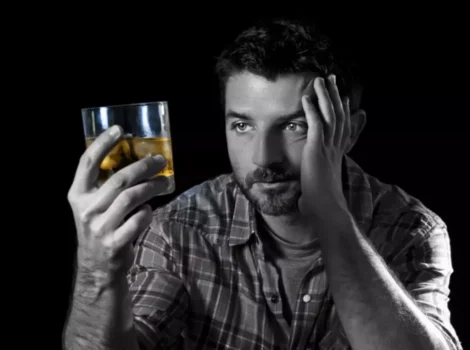Alcohol is a depressant substance, meaning that it helps to suppress some of the “fight-or-flight” stress reactions that anger can induce. Repeated alcohol abuse as a coping mechanism increases the odds for developing problems related to alcohol, however. It also raises the risk for negative consequences of outbursts related to explosive and uncontrolled anger. Over time Ryan came to better understand factors that contributed to his drinking, including his anger and increased aggression when drinking.
Disruption to emotional regulation
This is one reason why people are quick to anger when they’re drinking – they are perceiving more threats than they would with no alcohol in their system. When most people think of how alcohol affects the body, the brain isn’t the first thing that comes to mind. We often think of the liver, stomach, and how alcohol damages our overall physical health. But the brain is deeply (and immediately) impacted by heavy alcohol use as well. In fact, it’s the relationship alcohol shares with the brain that often causes people to experience things like rage and irritability while drinking.
Social factors of alcohol and rage
- With regard to baseline levels of anger, males scored at the 75th percentile and females at the 55th percentile on the STAXI-trait anger scale.
- Acute episodes of high alcohol consumption therefore seem to favor aggressive behavior more strongly than chronic alcohol consumption (15, 16).
- It’s common for alcohol and anger to be stereotypically lumped together, but many people labeled “angry” while drinking may actually be experiencing aggression or hostility.
- Some people have a higher likelihood of experiencing chronic anger over time, which is known as trait anger.
- Even the people who care about them the most can be unable or unwilling to continue to tolerate the abuse.
Because this part of the brain is responsible for impulse control, you may struggle to control a sudden urge to behave aggressively. In comparison, aggression is a collection of behaviors that cause harm to yourself or other people. Some people have a higher likelihood of experiencing chronic anger over time, which is known as trait anger. People who struggle with their mental health often turn to alcohol as a way of heeling.
Clarifying the distinctions between these emotional responses
In the late 80s I worked in an inpatient program for women who self-injure. While there were often several key contributing factors to such behavior, the self-injury served as a distraction from feeling empty and alcoholism and anger a way of feeling connected with oneself. Table 3 indicates the presence of higher mean score on trait anger for dependent group. Intermittent explosive disorder is a long-term condition that can go on for years.


Inhibitory factors increase the likelihood that a person will be able to resist an urge to behave aggressively in the presence of a given instigatory cue. Inhibiting factors set the threshold beyond which aggressive urges would result in aggression. The integrity of these inhibitory capabilities may be compromised by various disinhibiting influences, which decrease the effectiveness of inhibitory efforts and, therefore, decrease the likelihood that a person will be able to resist an https://ecosoberhouse.com/article/alcohol-and-headaches-why-does-alcohol-cause-migraines/ aggressive urge. A variety of disinhibiting cognitive processes support the “moral disengagement” that accompanies destructive human behavior, including alcohol intoxication [12, •13, ••14]. The difference between inhibiting and disinhibiting influences constitutes a person’s “urge-impedance,” or the overall ability of an individual to inhibit an aggressive inclination. To date, very few studies have tested the gender difference hypothesis using both the male and female subjects.
- If drinking causes a blackout, you may not even remember being aggressive unless someone reminds you about it.
- In other words, whatever you’re feeling before you drink will likely be magnified once you’re drunk, and because your decision-making is impaired, you’re more likely to act out that anger.
- Alcohol has a significant impact on our social landscape, from casual gatherings to formal events.
- There is a clear link between alcohol consumption and increased aggression levels.
- Under the influence of alcohol, those already predisposed toward anger may vent or, more seriously, direct their anger toward a target that might be experienced as less threatening than the original target.
- Drinking, or even the anticipation of consuming alcohol, causes the production of dopamine.
- Another study that explored the impact of alcohol consumption on facial recognition found that individuals with alcohol use disorder exhibited a bias toward misidentifying emotional facial expressions as hostile or disgusted (Freeman et al., 2018).
- Aggression is classified as impulsive, premeditated, and medically driven (Gollan et al., 2005).
- Once again, we found that when inhibitory cues were noticeable and unavoidable – in this case, cues that increase self-awareness – aggression was reduced among drunk participants.
After detox, people often choose to pursue inpatient or outpatient treatment programs. An inpatient treatment program involves staying at the rehab center overnight. This gives you a more intensive treatment program and extra medical supervision. If you have a severe substance use disorder, you may benefit from the added support and focus. It is easier to manage anger and other emotions if you know what to expect.












Leave a reply